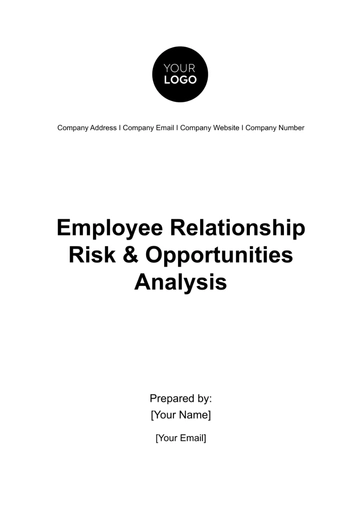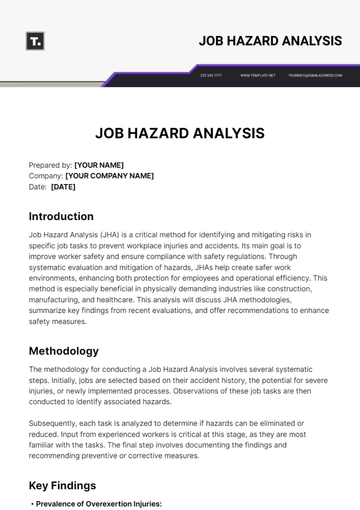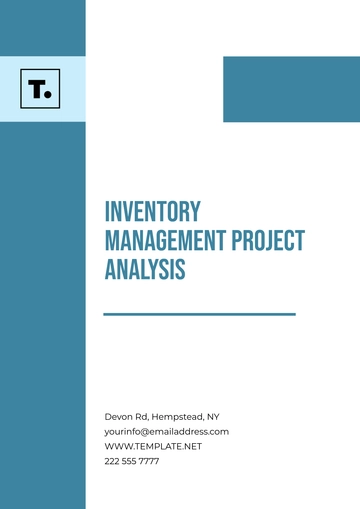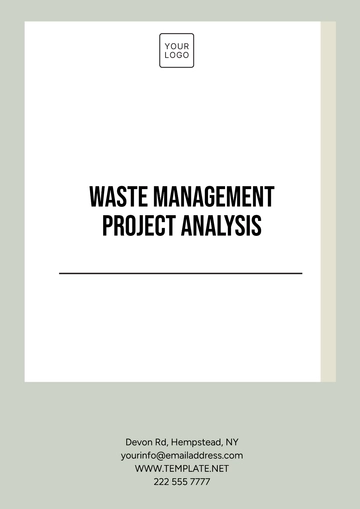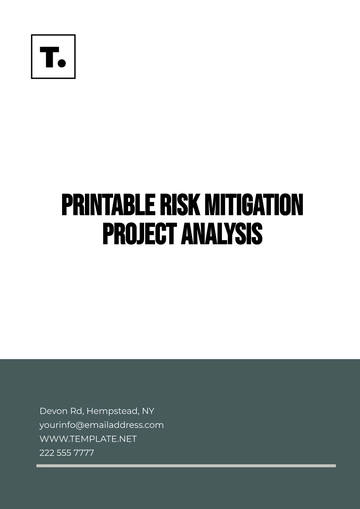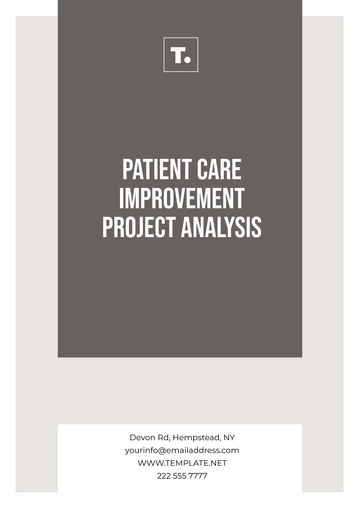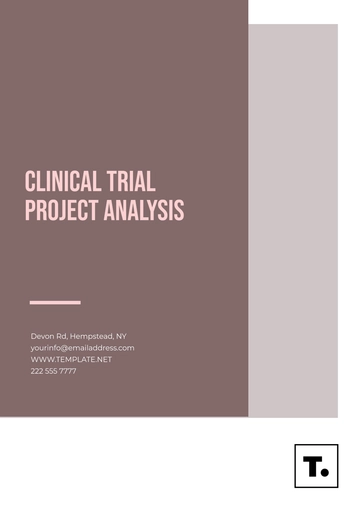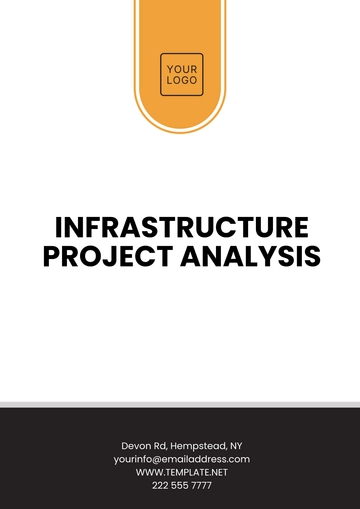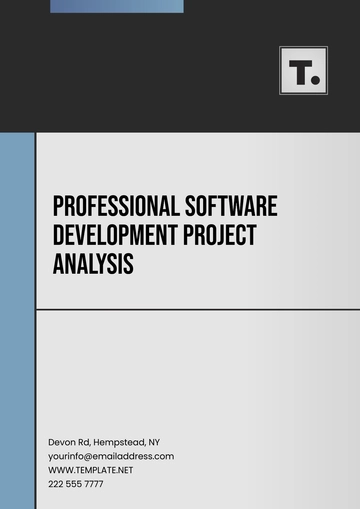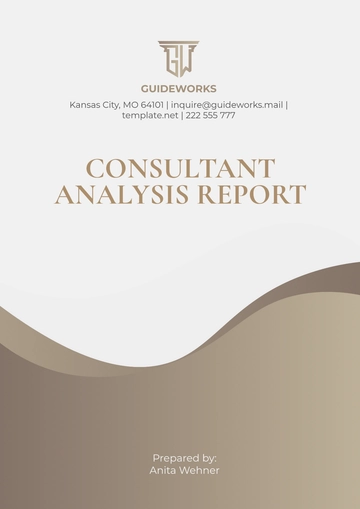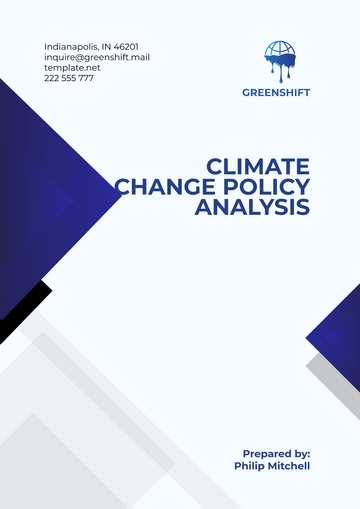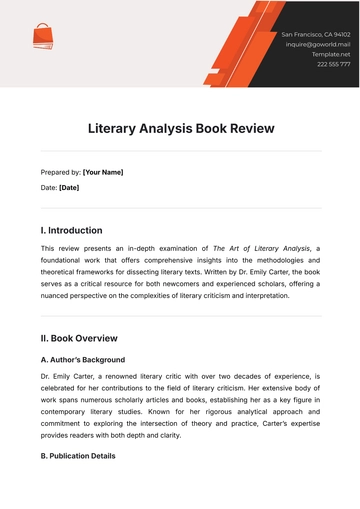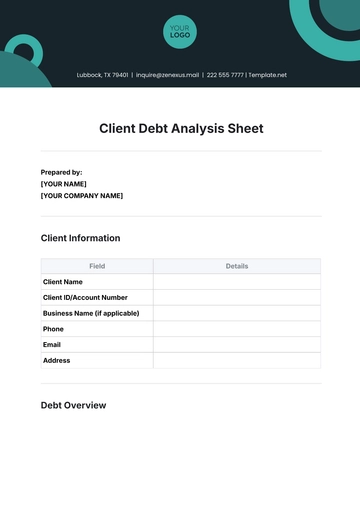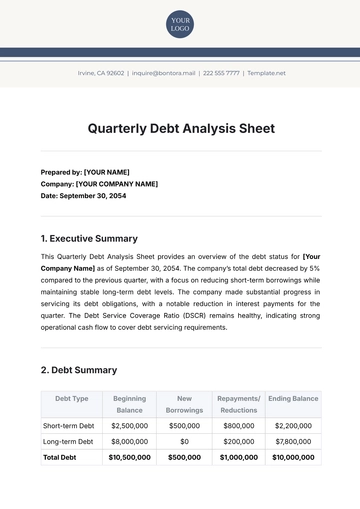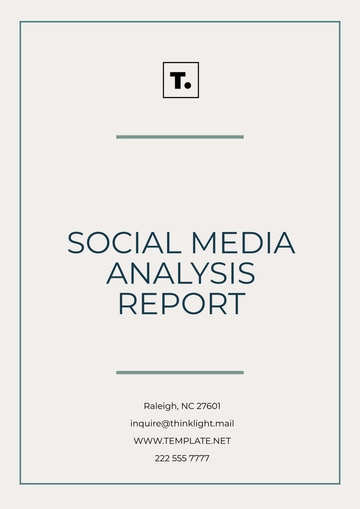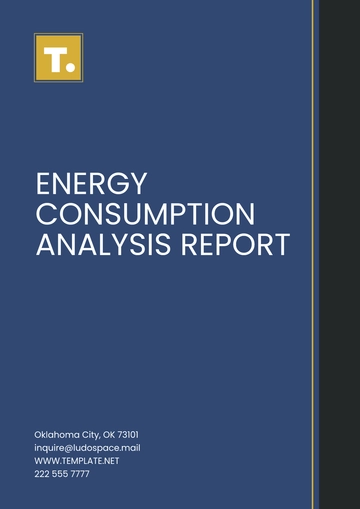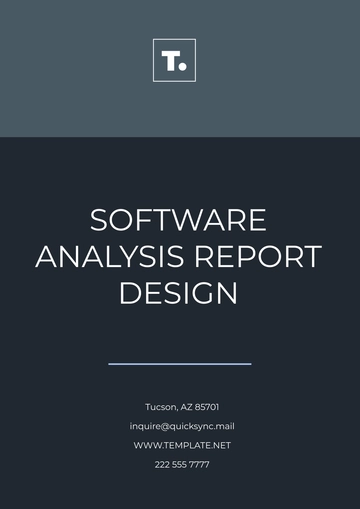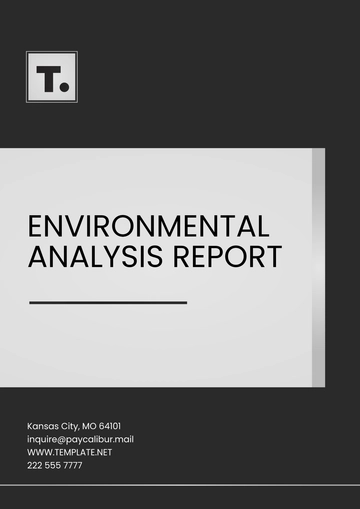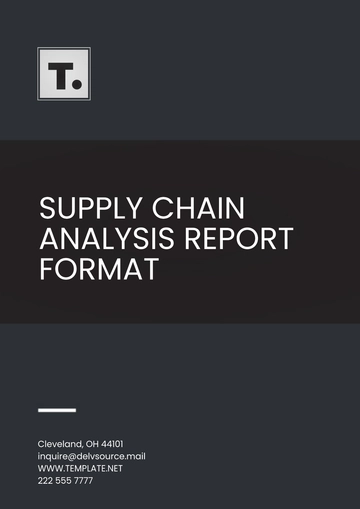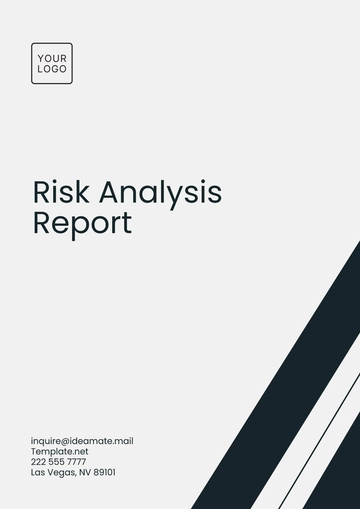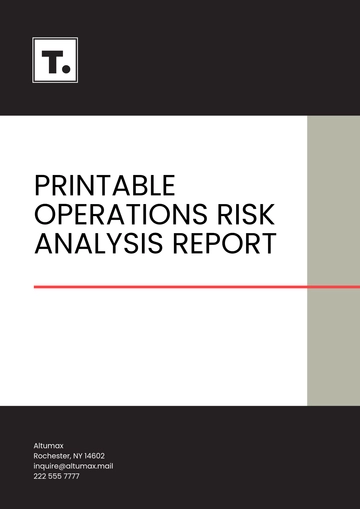Free Finance Accounts Compliance Analysis
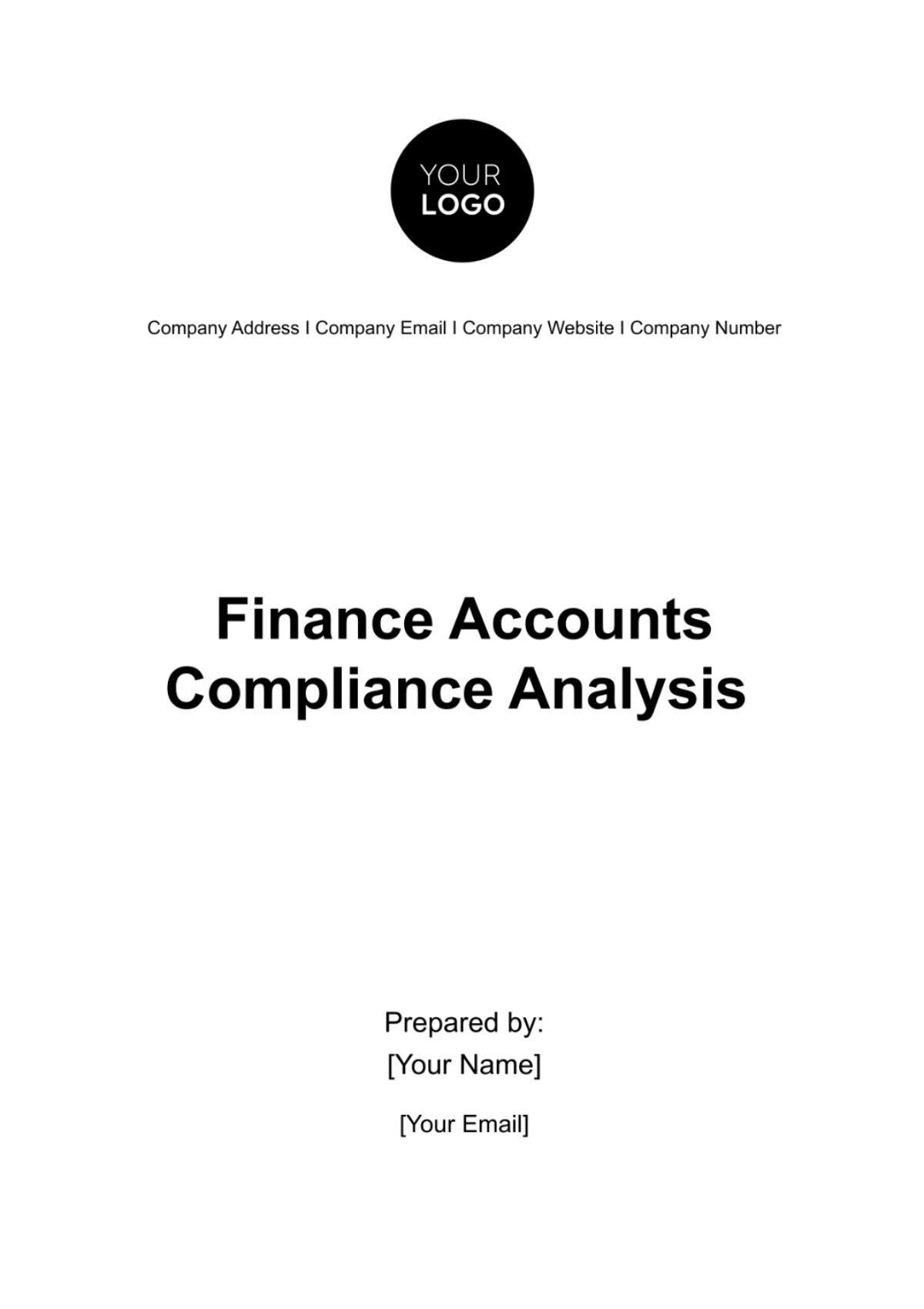
I. Executive Summary
This comprehensive analysis reviews the compliance status of [Your Company Name] in relation to financial reporting, tax obligations, regulatory adherence, and internal policy conformance. Our intensive review has revealed areas of strong compliance and other areas requiring attention and improvement. Key findings suggest a need for enhanced internal controls, refined compliance training, and improved documentation processes. Recommendations and an implementation plan are provided to address these areas promptly and effectively.
II. Introduction
As a leading entity in the [Industry], [Your Company Name] acknowledges the critical importance of strict financial compliance. This document represents a structured evaluation of our adherence to applicable financial regulations, standards, and company policies.
A. Purpose of the Analysis
To evaluate and ensure that all financial activities and records of [Your Company Name] align with legal and regulatory standards as well as internal controls and policies.
B. Scope of the Analysis
This analysis covers financial reporting accuracy, tax law compliance, adherence to industry-specific regulations, and conformance to our internal financial governance standards.
III. Regulatory Context
Operating within [Country/Region], [Your Company Name] is subject to a complex and ever-evolving array of financial regulations. These regulations are designed to ensure transparency, accountability, and fairness in our financial operations and are critical to maintaining the trust of our stakeholders and the broader public. Compliance with these regulations is not only a legal obligation but a cornerstone of our corporate integrity and stakeholder trust. The key regulations impacting our financial operations include:
A. Sarbanes-Oxley Act (SOX)
As a company that may have dealings in the United States or is listed on a U.S. exchange, we adhere to the Sarbanes-Oxley Act. SOX mandates stringent reforms to enhance corporate responsibility, enhance financial disclosures, and combat corporate and accounting fraud. It affects all areas of our financial reporting and requires that we maintain robust internal controls over financial reporting and regularly assess the effectiveness of these controls.
B. General Data Protection Regulation (GDPR)
For our operations in the European Union or those that handle the personal data of EU residents, GDPR is a critical regulatory consideration. It mandates strict handling and protection of personal data, providing individuals with greater control over their personal information. GDPR compliance is essential not only to avoid hefty penalties but also to ensure trust in how we handle sensitive financial and personal data.
C. Dodd-Frank Wall Street Reform and Consumer Protection Act
Dodd-Frank, primarily impacting our financial transactions in the United States, brings comprehensive regulation of financial markets and aims to reduce systemic risk, increase transparency, and protect consumers from abusive financial services practices. Its implications extend to our risk management practices, trading activities, and even executive compensation policies.
D. Country-Specific Regulations
In addition to international regulations, [Your Company Name] also complies with [Country/Region]-specific financial regulations, which might include [List country-specific regulations]. These might cover areas such as financial reporting standards, corporate taxation, anti-money laundering efforts, and more. Staying abreast and compliant with these local regulations is crucial for our day-to-day operations and long-term strategic objectives.
E. Commitment to Compliance
At [Your Company Name], compliance with these regulations is seen as a fundamental aspect of our business operations. It involves an ongoing commitment from all levels of the organization, from the boardroom to individual contributors. We have established comprehensive compliance programs, regular training, and continuous monitoring mechanisms to ensure adherence. Our compliance efforts are not static; as regulations evolve and new standards emerge, we are committed to adapting our practices to meet these changes.
IV. Methodology
To ensure a thorough and accurate Compliance Analysis, our methodology was comprehensive and multifaceted, involving several key steps:
A. Data Collection
Financial Statements and Records: We meticulously reviewed balance sheets, income statements, cash flows, and equity statements for the past five years to understand trends and identify anomalies.
Tax Records: Detailed examination of tax returns, payments, and communication with tax authorities to assess tax compliance.
Regulatory Communications: Scrutiny of all correspondence with regulatory bodies, including any audits, inquiries, or reports submitted.
Internal Policy Documents: Review of all finance and accounting policy documents, codes of conduct, and ethics guidelines.
Interviews: In-depth discussions with finance, accounting, and compliance personnel to understand processes, identify risks, and gather insights on the functioning of controls.
B. Assessment Criteria
Legal Requirements: Comprehensive checklist of all national and international financial regulations applicable to our operations.
Accounting Standards: Detailed alignment check with GAAP or IFRS as applicable, including specific industry accounting guidelines.
Best Practice Frameworks: Comparison against recognized best practices in financial management and compliance, including COSO framework for internal controls and ISO standards where relevant.
C. Analysis Process
Document Review: Line-by-line examination of documents to verify accuracy, completeness, and compliance.
Process Evaluation: Flowcharting and testing of key financial processes to identify control gaps and inefficiencies.
Interviews and Surveys: Gathering qualitative data from personnel involved in finance and compliance to understand awareness, attitudes, and adherence to policies.
V. Regulatory and Compliance Framework Overview
[Your Company Name] operates in a complex and evolving regulatory landscape, which necessitates a robust compliance framework. Our commitment to integrity and excellence drives our approach to meet and exceed these requirements.
A. Key Legal Requirements
Financial Reporting Laws: Such as the Sarbanes-Oxley Act, Dodd-Frank Act, and local financial reporting requirements.
Tax Laws: Federal, state, and international tax regulations including but not limited to the IRS code, VAT, GST, and corporate tax laws.
Industry-Specific Regulations: Depending on the sector, regulations such as HIPAA for healthcare, GDPR for data protection, or specific banking regulations.
B. Internal Policies and Standards
Our internal policies are designed to ensure not just compliance but also operational excellence. These include:
Financial Control Policies: Guidelines for financial reporting, budgeting, capital expenditure, and risk management.
Code of Conduct and Ethics: Laying down the principles for professional conduct and ethical decision-making.
Data Protection Policies: Ensuring confidentiality, integrity, and availability of financial data.
C. Benchmarking against Industry Best Practices
To ensure leadership in financial integrity, we regularly benchmark our processes against industry best practices including:
Peer Review: Comparing practices with industry counterparts.
Professional Standards: Adhering to standards set by professional bodies such as the AICPA or ICAEW.
Continuous Improvement Programs: Adopting programs such as Six Sigma or Lean in our financial processes to drive efficiency and accuracy.
VI. Compliance Assessment
A. Financial Reporting Compliance
While our financial reports largely adhere to GAAP/IFRS standards, we identified minor discrepancies in areas such as revenue recognition and asset valuation. These are isolated incidents and are being systematically addressed through revised procedures and additional staff training.
B. Tax Compliance
Our tax filings have consistently been timely and accurate, reflecting a strong understanding and application of complex tax laws. Ongoing auditing has been effective, however, we recommend continued vigilance due to the evolving nature of tax regulations.
C. Regulatory Compliance
Compliance with industry-specific regulations such as the Payment Card Industry Data Security Standard (PCI DSS) has been robust, but recent changes in data protection and payment security necessitate a review and enhancement of our compliance measures, particularly in areas such as transaction security and customer data encryption.
D. Internal Controls Evaluation
Our internal controls are fundamentally strong and have been effective in ensuring financial integrity and accuracy. However, to adapt to the growing scale and complexity of our operations, improvements in areas such as cybersecurity, transaction monitoring, and third-party risk management are recommended
VII. Findings and Analysis
The analysis revealed that [Your Company Name] maintains a commendable level of compliance across most areas, demonstrating a strong commitment to financial integrity and regulatory adherence. Key findings include robust financial reporting mechanisms, adherence to tax laws, and a comprehensive understanding of industry-specific regulations.
However, areas requiring immediate attention have been identified. These include enhancements to cybersecurity measures to prevent data breaches and unauthorized access, strengthening transaction monitoring to detect and prevent fraudulent activities, and tightening third-party risk management to ensure that all external partners and vendors adhere to our strict compliance standards.
The identified gaps present not just regulatory risks but also potential financial and reputational risks. Without timely and effective action, these gaps could lead to significant penalties, loss of customer trust, and operational inefficiencies. These findings must be addressed promptly to maintain the high standards of compliance and integrity that [Your Company Name] is known for.
VIII. Recommendations
To mitigate risks and enhance our compliance stature, we recommend:
Enhanced Internal Auditing: Adopting a more proactive and comprehensive internal audit function to ensure continuous compliance and identify areas for improvement.
Staff Training: Rolling out an updated, regular training program focusing on areas of change in financial regulations, internal policy updates, and ethical conduct.
Process Improvement: Undertaking a detailed review of current financial processes to identify and implement efficiency and accuracy improvements.
Documentation Enhancement: Strengthening our documentation to provide clear, comprehensive, and accessible records of all financial transactions and decisions.
IX. Implementation Plan
A structured implementation plan is proposed for each recommendation:
Action Items: Specific tasks are outlined, with clear definitions of expected outcomes.
Responsibilities: Assigning clear ownership of each task to appropriate team members or departments.
Timeline: Setting realistic deadlines for the completion of each task, with milestones for larger projects.
Regular progress reviews will be conducted to ensure tasks are on track and to make any necessary adjustments to the plan.
X. Conclusion
This Finance Accounts Compliance Analysis underscores [Your Company Name]'s dedication to upholding the highest standards of financial compliance. Addressing the identified areas of improvement is not just a regulatory requirement but a strategic imperative to maintain our reputation, ensure operational efficiency, and safeguard our financial stability. By committing to these recommendations and their implementation, [Your Company Name] will continue to exemplify excellence and integrity in all its financial practices.
- 100% Customizable, free editor
- Access 1 Million+ Templates, photo’s & graphics
- Download or share as a template
- Click and replace photos, graphics, text, backgrounds
- Resize, crop, AI write & more
- Access advanced editor
Assure stringent financial adherence with Template.net's Finance Accounts Compliance Analysis Template. This professional, editable, and customizable template is tailored to simplify complex compliance evaluations, offering a meticulous approach to examining and ensuring adherence to financial regulations. Empower your business to uphold the highest standards of financial compliance with our template that can be easily edited using our Ai Editor Tool.
